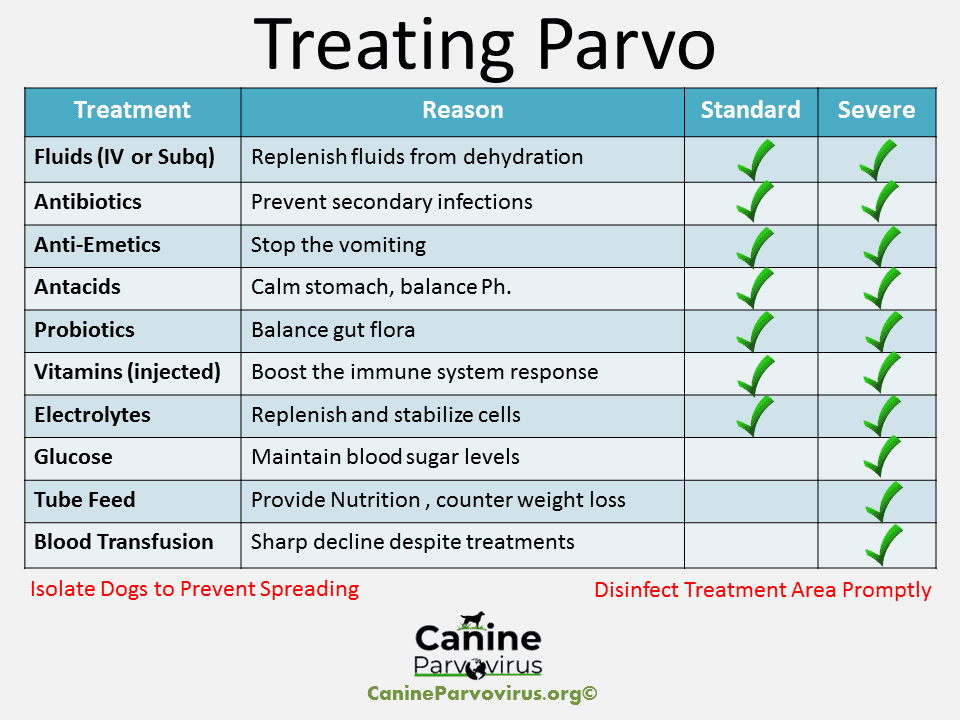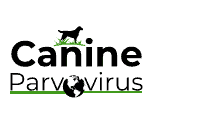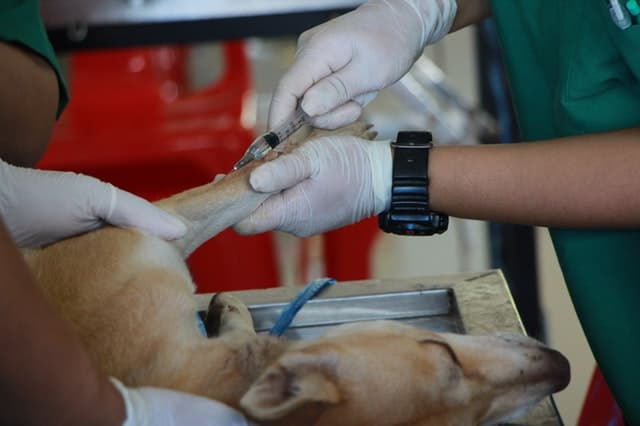
Parvo Treatment – FAQ’s
Even though Canine Parvovirus is highly contagious and often deadly, dogs can and do survive parvo. Whether or not they will depends on the dog’s overall health and how early she receives treatment and begins a recovery plan.
A standard treatment plan will include fluids, antibiotics, anti-nausea medicines, antacids, probiotics, vitamins, and electrolyte supplement. More severe cases could include glucose, tube feeding and as a last resort: blood transfusion.
Will my dog recover from parvo on his own?
Parvo is not like a cold or flu virus, it is a serious illness with a high mortality rate. If your dog has mild to severe symptoms she will not likely recover without help. If you hear of a dog recovering from parvo on his own, it’s likely because the exposure was very low and the dog had been recently vaccinated.
Can I just treat parvo at home?
A dog’s chance of surviving parvo increases exponentially when they receive a professional medical consultation. Once your dog has been examined, many veterinarians will facilitate and encourage a home-based recovery. This could involve a special interval diet, subcutaneous fluids and light vital sign monitoring; along with progress report phone calls and drop-off fecal testing.
What happens if I don’t treat my dog’s parvo?
The outlook isn’t good if you decide not to treat your dog’s parvo symptoms. 90% of dogs will die from parvo if left untreated.


